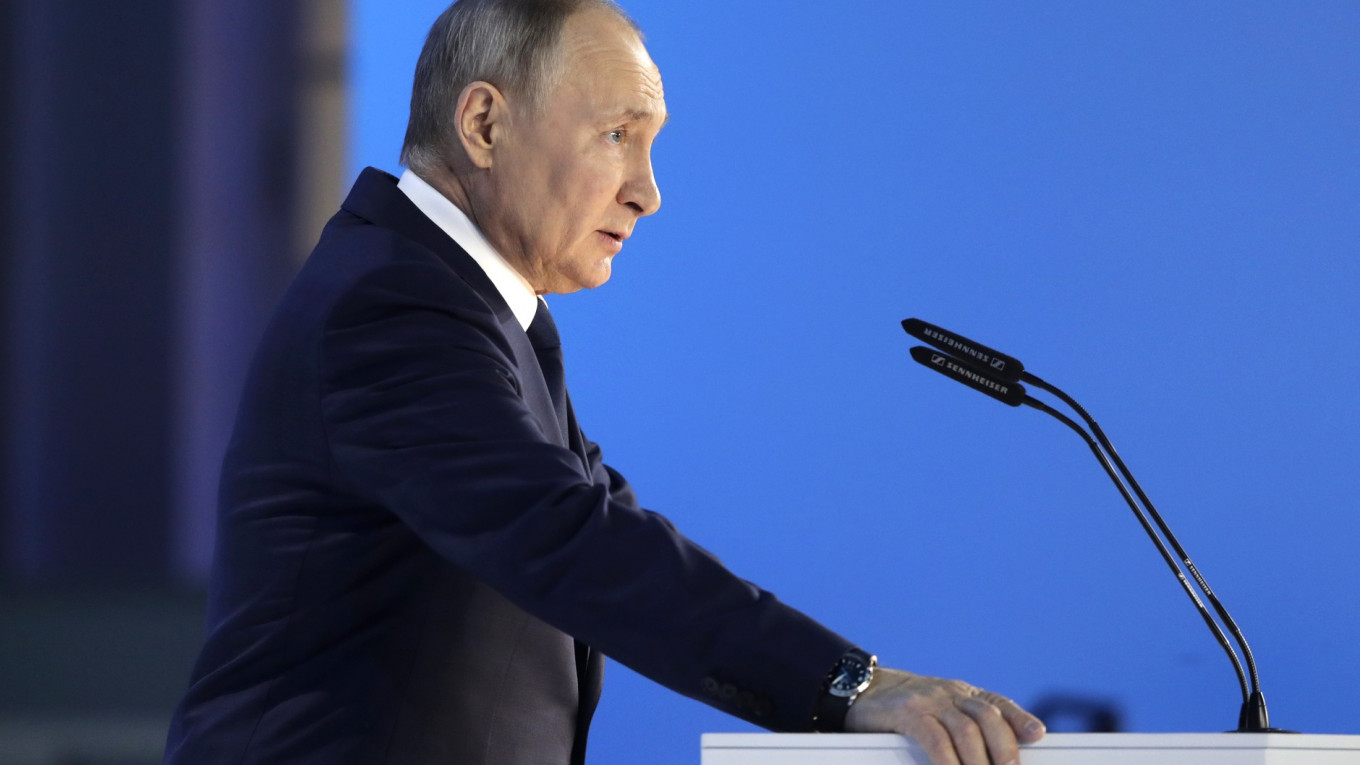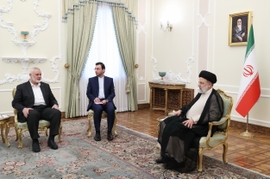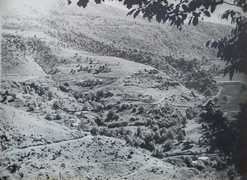President Vladimir Putin’s annual state-of-the-nation speech made headlines on Wednesday when he harshly warned the West against encroaching further on Russia's security interests, and promised a swift retaliation against anyone who crosses "red lines".
"I hope no one gets the idea to cross the so-called red line with Russia, and we will be the ones to determine where it runs in each specific case," Kommersant quoted Putin as saying as he addressed governors and members of both houses of parliament on Wednesday.
The warning came amid rising tensions between Moscow and Washington and after the White House last week hit Russia with fresh sanctions, a move that included the expulsion of 10 Russian diplomats from the US, leading to a prompt tit-for-tat response from the Kremlin. The Czech Republic and Bulgaria followed the US move by expelling Russian diplomats, which prompted Moscow to resort to the same measure.
In his annual address to the nation, President Putin made it clear that although Russia "wants to have good relations with all participants of international society," the country will defend its interests if it forced, recalling what he claimed were western efforts at government change in Belarus as another threat to Russia’s security.
"We really don’t want to burn the bridges," Putin said. "But if someone mistake our good intentions for indifference or weakness and intend to burn or even blow up those bridges themselves, Russia’s response will be asymmetrical, quick and tough."
The 68-year-old president went on to condemn what he described as the tendency "to blame Russia" for anything, saying it had become like a sport.
"The organizers of any provocations threatening the fundamental interests of our security will regret their deeds more than they have regretted anything in a long time," Putin added.
Alexander Gabuev, senior fellow and the chair of Russia in the Asia-Pacific Program at the Carnegie Moscow Center, believes that Russia's sovereignty is the area where Moscow can mark "red lines."
"As for the 'red line', apparently, here we are talking about the actions that are considered as an attack against Russia's state sovereignty, including interference in its internal affairs or prejudice to our country's really very important international interests," Gabuev said. "I think that this means an implicit readiness for dialogue."
What was already strained relations between the world's two largest military powers, deteriorated over a move by Russia to station troops close to Ukraine in a military buildup on a scale not seen since the 2014 Ukraine crisis. Concerned over possible hostilities in the conflict-stricken Donbas region, where renewed shelling and skirmishes between the Ukrainian army and pro-Russian separatist regimes violated the fragile ceasefire, the West, which counts Kyiv as an ally, called on the Kremlin to pull the troops back to de-escalate tensions.
However, Moscow maintains that Russian military movements near its border with Ukraine should not be seen as a threat to Kyiv or anyone else. At the same time, the Kremlin has warned Ukraine against trying to use force to retake control of the region, saying Russia could be forced to intervene to protect civilians in the region if tensions erupt into a full-fledged conflict.
While Kyiv and the West have accused Russia of supporting the separatist regimes in Donetsk and Lugansk with weapons and troops, Moscow has repeatedly denied those claims. Despite a ceasefire that halted a full-scale war in 2015, the deadly skirmishes never ceased. The ongoing conflict in eastern Ukraine has so far claimed the lives of some 14,000 people and left as many as 40,000 wounded, according to Kyiv’s estimates.







 On the night of April 7 to 8, 1992, a peaceful Azerbaijani village, Aghdaban, located in the Kalbajar district, became the scene of a harrowing tra...
On the night of April 7 to 8, 1992, a peaceful Azerbaijani village, Aghdaban, located in the Kalbajar district, became the scene of a harrowing tra...
 On International Day for Mine Awareness and Assistance in Mine Action on April 4, the Azerbaijani government emphasized the persistent menace of la...
On International Day for Mine Awareness and Assistance in Mine Action on April 4, the Azerbaijani government emphasized the persistent menace of la...
 Iran's senior military leaders described the drone and missile attack on Israel on April 14 night as “successful".
Iran's senior military leaders described the drone and missile attack on Israel on April 14 night as “successful".



